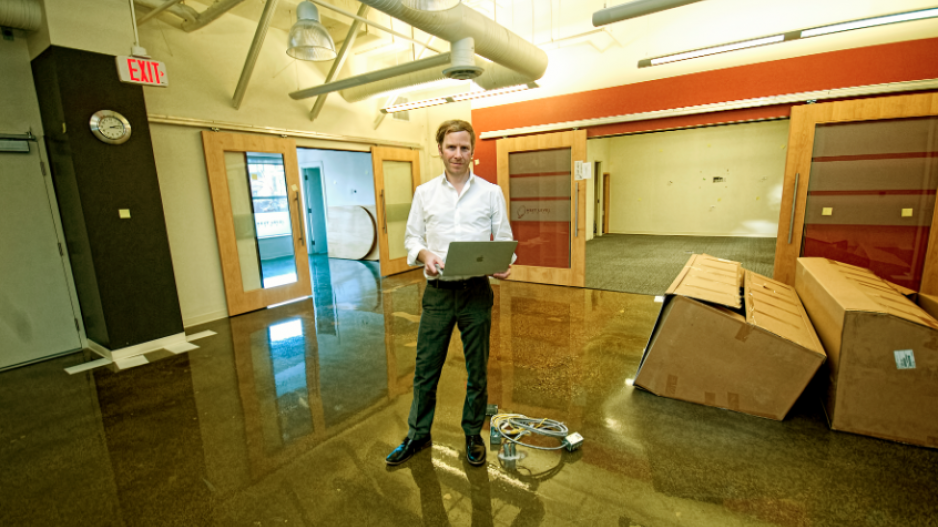Hollywood blockbusters frequently roll through Canadian cinemas like chocolates going down a factory conveyor belt to get boxed. A few years ago, studios released big-budget flicks only during the summer, but they now release franchise fare every few weeks, no matter the season.
Unlike Canada, however, China has an import film quota that limits Hollywood releases to just 34 a year.
The Hollywood conveyor belt wants to rev up across the Pacific to tap into the world’s largest market, but the factory owners are keeping volumes low.
“There’s a unique predicament right now where North American films are not necessarily guaranteed to get the Chinese box office,” said Jason Dowdeswell, former vice-president of production at Vancouver’s Sony Pictures Imageworks, who also supervised visual effects on films like Zombieland and Twilight.
“And a lot of the Hollywood studios are entertaining that desire.”
As is Dowdeswell.
Earlier this month, he and business partner Greg Herbert launched Darkhorse10 Pictures Inc., a film production company backed by foreign investment from Beijing’s Plusmos Film Technology.
“As a partnership, it means that the development we make over here has better means and grounds to be shown to the Chinese population,” CEO Dowdeswell said.
Over the next three years the Vancouver-based production company will develop its own original content aimed at audiences in both China and North America.
Meanwhile, the Darkhorse10 founders are leaning on their own expertise and building a 50-person team over the next four months to do visual effects (VFX) work for North American films and Plusmos’ Chinese productions.
“They [Plusmos] develop, do the production, do the post-production, and they distribute their films in China. In that product, though, they recognized that the weakest link is the quality of visual effects,” Dowdeswell said.
“So they said to themselves, ‘We can either wait 10 years for the Asian workforce to get better at the game,’ or they could partner with a North American entity and use that group as a tool to help make their own films look better.”
Warren Franklin, CEO of Eaglecliff Entertainment and chairman of the Visual Effects Society’s Vancouver chapter, has visited VFX studios in China and expects more Chinese productions to seek help from Vancouver’s VFX studios.
“The skill level [in Vancouver] is quite accomplished compared to what you would get – right now, anyway – in China,” said Franklin, who ran Industrial Light and Magic at Lucasfilm for 13 years before moving to Vancouver in 2000.
While most local VFX houses are doing service work for foreign productions, Darkhorse10’s business model means it will create its own content and map out VFX work during the development stage instead of post-production to save time and money.
Franklin said this model is a sign Vancouver’s talent pool is reaching critical mass.
“[High-level talent is] developing projects that will be made in Vancouver and developed in Vancouver, not just a service business,” he said.
“So that’s the next level we need to get to, where companies are creating their own content and properties, and I think that will happen because of the talent pool that has amassed here.”
Patrick Sauriol, executive director of the DigiBC media advocacy group, met recently with Chinese producers considering opening offices in Vancouver due to the rapid growth of China’s film sector.
He also expects more opportunities to emerge between Chinese productions and Vancouver VFX studios.
For now, Sauriol likens the local gaming, VFX and film and TV industries to brothers and sisters living in the same household.
“They’re different from each other in what they like, their personalities,” he said.
“But they’re also very similar in a lot of ways where there’s been rapid growth and there’s an industry springing up from that.”




